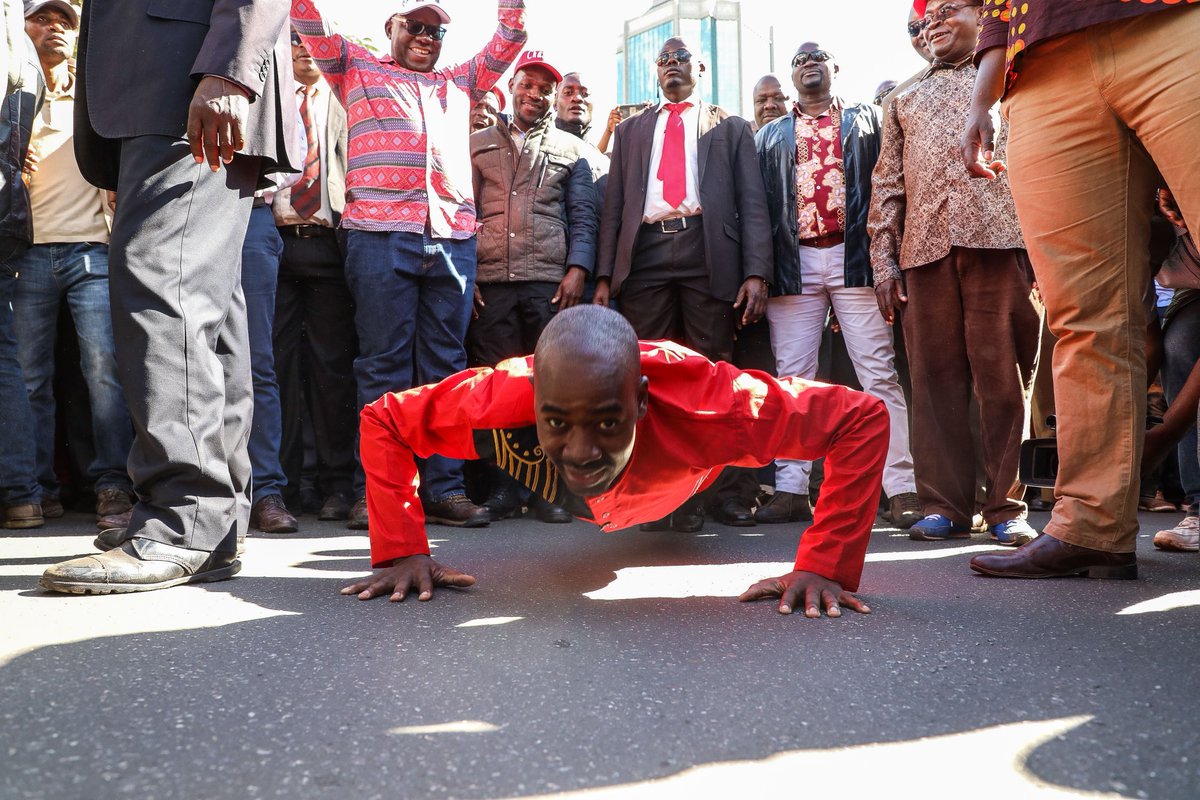Utopian dreams
The MDC leader, Nelson Chamisa is divorced from reality and is good at propagating his Utopian fantasies which do not help the electorate at all. The electorate expects to hear hard hitting facts and possible solutions to the challenges that they face, but Chamisa in his lack of wisdom more often than not chooses to tell tales at his various and unending rallies.
Lack of pro-people policies
Since its inception, the MDC has failed to craft policies which are realistic and helpful to the electorate. People want their bread and butter issues to be addressed, but the MDC chooses to ignore that and focus on issues at the periphery. The electorate is not interested in the MDC’s blame game. It does not care who did what. What it urgently needs are practical solutions to their daily challenges. Contrary to the MDC, ZANU PF always wins the most important rural vote because its policies are spot on and address the real concerns of the people.
All froth, but no beer
Over the years the MDC has reduced itself to “simba repinjisi rakawandira pamuromo (the pliers’ syndrome),” a local street lingo description of someone who concentrates more on talking than action. “Too much talking, but no action”, is the best description of Chamisa when he addresses the electorate at campaign rallies. By the end of the day, the electorate has nothing meaningful to point at as the solutions that Chamisa proffers to their challenges.
Party structures
That party has no structures on the ground. They have no fully constituted grassroots structures in rural areas since the formation of the party in 1999. When it comes to campaigns, the MDC simply address people who just turn up to hear what Chamisa and his party has to say. What this simply means is that the party has no sound foothold and it is hanging in the air. Late last year the party’s secretary for administration, Chalton Hwende posted on the social media made up images of some odd MDC rural meeting and claimed that the party was covering swathes of Zimbabwe’s ground constituting structures. This was just a cover up to appease the restive party members who were getting miffed by a string of by-election losses to ZANU PF in some rural local authorities.
The MDC was born of Economic Structural Adjustment Programme (ESAP) urban grievances and is therefore not wired for rural politics. This is why its efforts to come up with lower party organs in rural and resettlement areas have come to nought. That is why there is nothing on the ground to show that the MDC is making inroads into the rich rural constituencies. This picture shows that the MDC’s chances of winning the 2023 elections are next to nothing. Odds are ranged against the party and its 2023 electoral defeat is therefore sealed.
Economic trump card
The party thrives on people’s suffering because it has no ideology or policies of its own. In 2008, it won more constituencies riding on economic situation and already indications are that it intends to repeat the same strategy in 2023, hence its refusal to be part of Political Actors Dialogue (POLAD). This is going to be its major undoing as people will never forgive the MDC for the sanctions-induced economic challenges that they are currently going through. The party has repeatedly begged the West to renew its sanctions against Zimbabweans every year as a political weapon to force the people to protest against ZANU PF.
The MDC wants to claim that it is the one which holds the keys to the country’s economic challenges. Far from it, the MDC has never proffered any meaningful and practical solutions to the country’s challenges.
No policy implementation
Their policy documents A Sustainable and Modernisation Agenda for Real Transformation (SMART) and Roadmap to Legitimacy, Openness and Democracy (RELOAD) remain on the Harvest House shelves gathering dust unimplemented despite controlling urban local authorities which are riddled with corruption and shockingly poor service delivery.
The MDC dominates urban local authorities namely Harare, Bulawayo, Gweru and Mutare, among others, but it has become the order of the day that these cities save for Bulawayo to have unpalatable records of poor service delivery. On Friday, 3 January 2020, President Emmerson Mnangagwa took his national Clean Up campaign to Kuwadzana Constituency. Apparently this constituency’s legislator is none other than the talkative Hwende. Chamisa also happens to be the constituency’s immediate past legislator. The President was greeted by mounds of uncollected refuse which the MDC-dominated Harare City Council failed to clear and had to be dealt with during the President’s visit to the area.
Reconfiguration of constituencies
The announcement by the Zimbabwe Electoral Commission (ZEC) of shrinking and expansion of constituencies in response to population density in certain provinces ahead of the 2023 elections has sent shivers down the spine of the MDC. Owing to ever declining numbers of registered voters, ZEC proposed to keep the constituencies at 210, but with the following changes: Bulawayo 10 from 12 Harare 33 from 29; Manicaland 27 from 26; Mashonaland West 24 from 22; Mashonaland Central 20 from 18; Masvingo 23 from 26; Matabeleland North 12 from 13 and Matabeleland South 10 from 13 constituencies. Meanwhile, Mashonaland East and Midlands Provinces remain at 23 and 28 constituencies, respectively.
Each constituency is supposed to have at least 27 077 registered voters. The MDC’s fears are based on the fact that the party is ill-prepared for the next poll because it relies more on the people’s grievances than on sound policies and programmes to address the people’s anxieties and concerns.
After all is said and done, MDC is looking defeat again in 2023, and there is no voodoo involved in coming up with this prediction.




